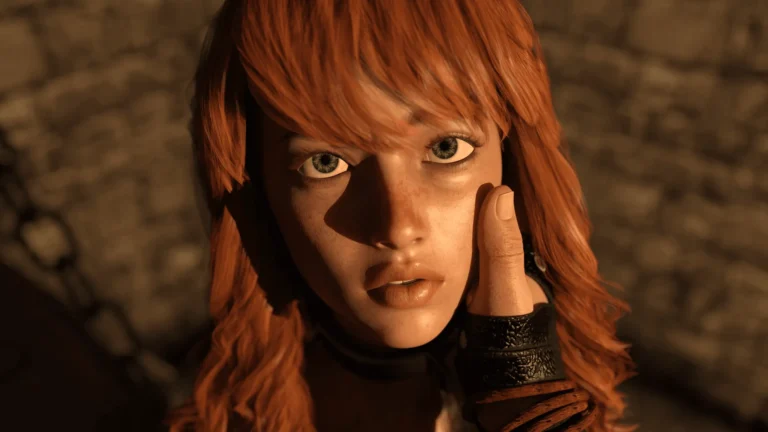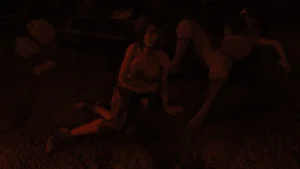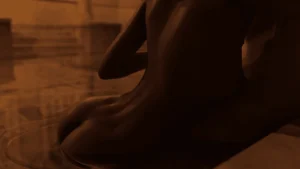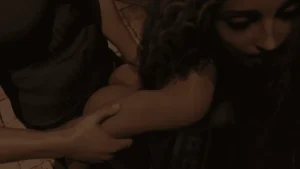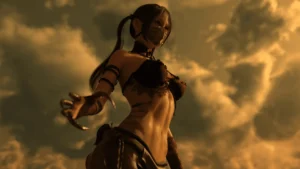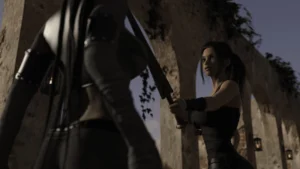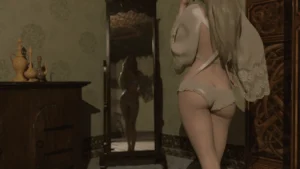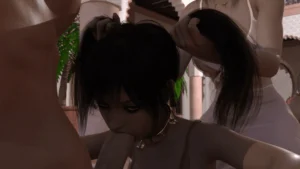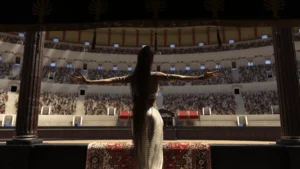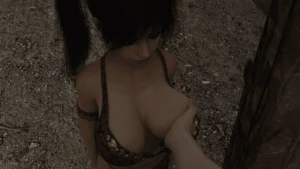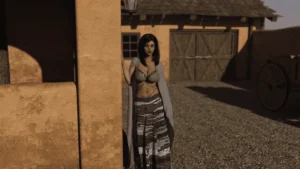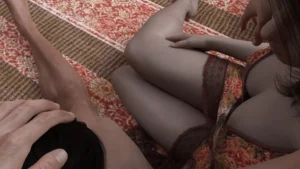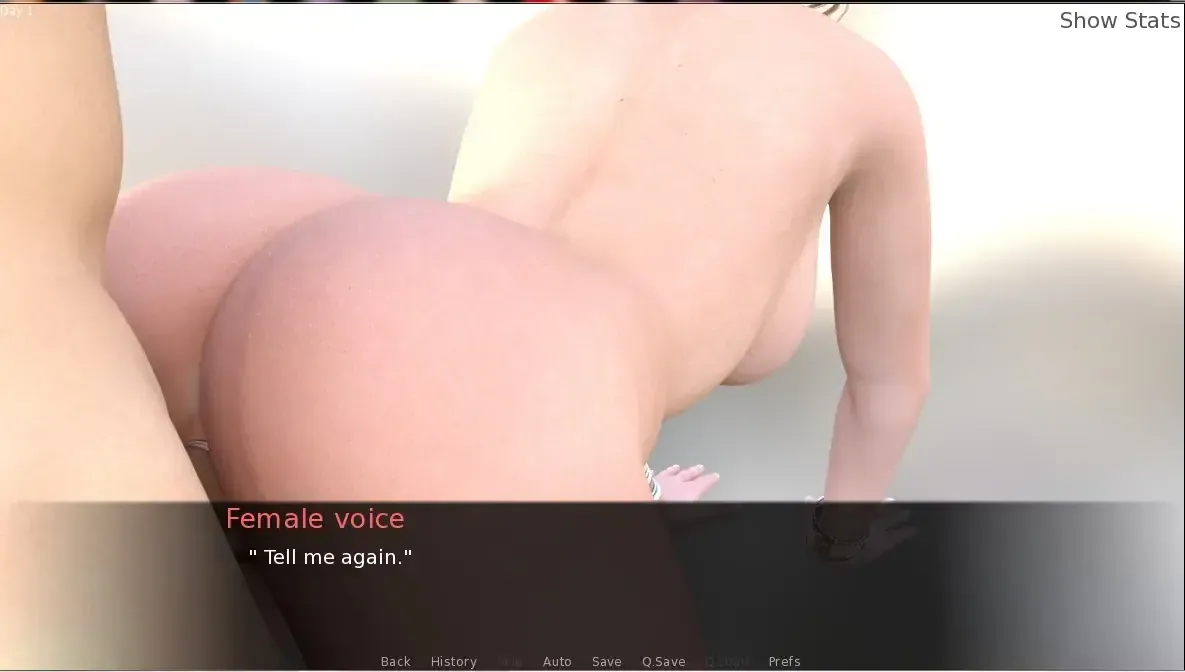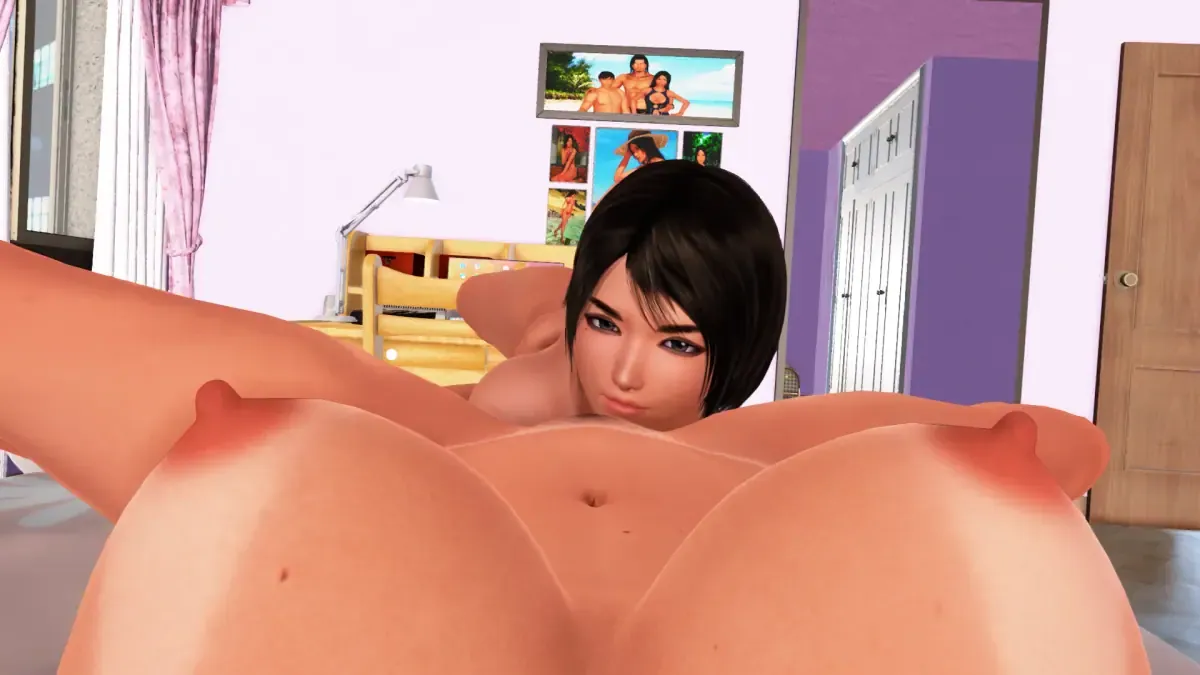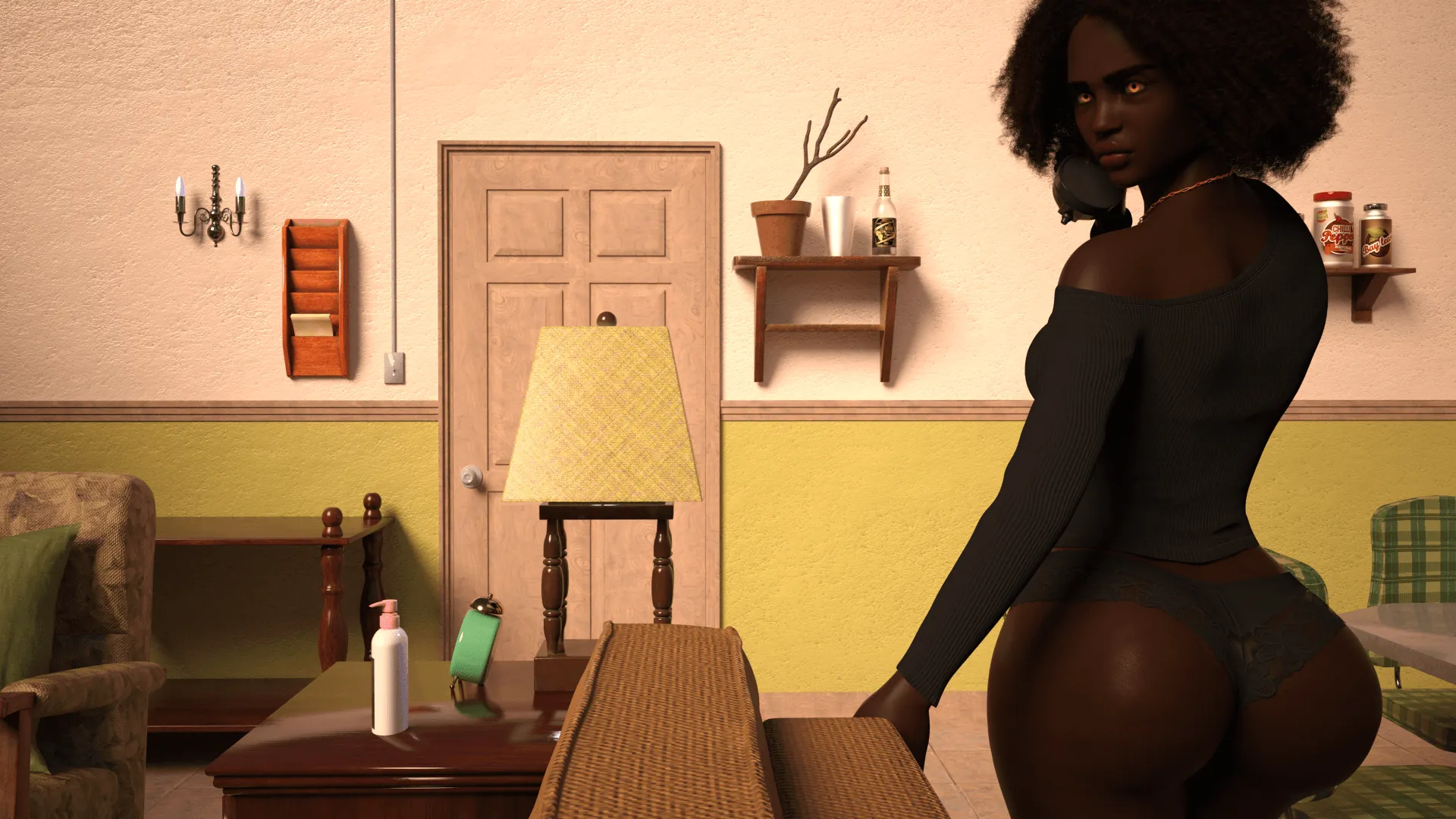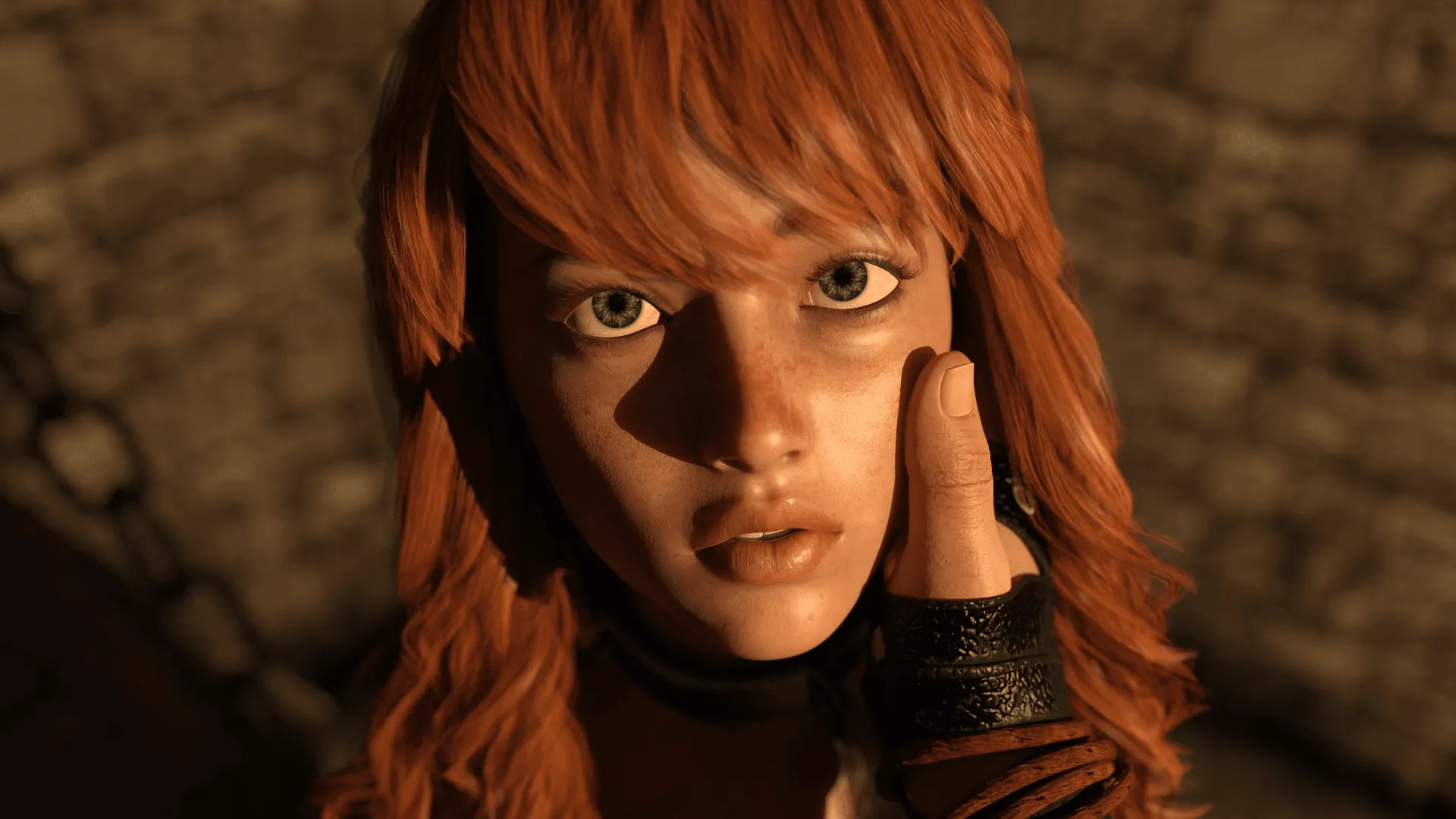
Desert Stalker
Play Desert Stalker
Desert Stalker review
Exploring the immersive world, mature themes, and player choices in this post-apocalyptic visual novel
If you’re curious about Desert Stalker, you’re not alone—this post-apocalyptic visual novel has carved out a niche for itself with its gripping story, atmospheric setting, and bold approach to mature content. As a player, you step into the shoes of a family man navigating a harsh, ruined world, making choices that shape not just your destiny, but the lives of those around you. Whether you’re drawn by the narrative depth, the polished visuals, or the freedom to explore adult scenarios, Desert Stalker offers a distinctive blend of adventure, horror, and player-driven storytelling. In this article, we’ll dive deep into what sets Desert Stalker apart, how its gameplay works, and what you can expect from its controversial themes.
Desert Stalker: Setting and Storyline
A World in Ruins: The Post-Apocalyptic Backdrop
Step into a world where the sun bleaches forgotten bones and the wind carries the whispers of a lost civilization. 🏜️ The Desert Stalker setting is not just a backdrop; it’s a character in its own right, a brutal, beautiful, and unforgiving landscape that will test your will to survive at every turn. This isn’t your typical run-and-gun apocalypse; it’s a deeply atmospheric post-apocalyptic visual novel where the environment is your greatest adversary and your most poignant reminder of what was lost.
The game paints a picture of a world shattered by an unspecified cataclysm, leaving behind vast deserts dotted with the skeletal remains of the old world. 🦴 You’ll encounter crumbling highways, derelict settlements, and the constant, gnawing threat of starvation and thirst. The atmosphere is thick with a sense of melancholy and dread, but also with fleeting moments of stunning beauty—a vibrant sunset over the dunes or the stark silence of a star-filled night. The Desert Stalker setting is masterfully crafted to make you feel the weight of this existence, immersing you completely in its harsh reality.
What truly sets this world apart is its focus on the human element amidst the desolation. This post-apocalyptic visual novel explores how society has reformed, or rather, devolved, into scattered pockets of survivors, each with their own rules, morals, and desperate struggles for power and resources. It’s a world where a single decision can mean the difference between finding a life-saving cache of supplies or stumbling into a raider’s ambush. 😨
To give you a clearer picture of how the Desert Stalker setting stands out, let’s compare its core themes with other games in the genre.
| Game Title | Primary Setting Focus | Key Themes |
|---|---|---|
| Desert Stalker | Social survival, community dynamics, moral choices in a desert wasteland | Family, duty, moral ambiguity, resource management |
| Fallout Series | Retro-futuristic Americana, vast open-world exploration | Satire, consumerism, nuclear consequences, faction warfare |
| The Last of Us | Urban decay, overgrown environments, linear narrative journey | Love, loss, paternal bonds, the cost of survival |
| Mad Max (Game) | Vehicular combat, desolate outposts, explosive action | Automotive worship, tribalism, fuel-based economy |
As you can see, while other titles often focus on large-scale exploration or action, the Desert Stalker story is an intimate, character-driven experience. The desolation isn’t just for show; it’s the crucible in which every relationship and every moral choice is forged. The pressure is always on, and the Desert Stalker setting ensures you never forget it. 🌅
Meet the Protagonist: Life in Zeta
Now, let’s talk about you—or rather, the character you will become. The Desert Stalker protagonist isn’t a blank slate super-soldier; he’s a man with a name, a past, and people who depend on him. You are a citizen of Zeta city, one of the last bastions of semi-civilized life in the wastes. But you’re not just any citizen; you’re a Stalker—a brave (or perhaps foolhardy) soul who ventures beyond the relative safety of the city’s walls to scavenge for the resources your community needs to survive. 🧭
Life in Zeta city is a precarious balancing act. It’s a place of stark contrasts—the bustling market square filled with traders hawking their wares exists just a stone’s throw from the silent, guarded quarters of the ruling council. As the Desert Stalker protagonist, you navigate this complex social structure daily. You have a home. You have a family. This is what makes the game so compelling. You’re not just fighting for your own life; you’re fighting for theirs. The emotional core of the Desert Stalker story is this powerful sense of duty and love, which makes every risk you take feel intensely personal.
Your interactions within Zeta city are crucial. You’ll build character relationships with a diverse cast, from the cynical gate guards and grateful neighbors to the powerful faction leaders who vie for control. Do you side with the pragmatic engineers who want to hoard technology, or the altruistic medics who want to distribute aid freely? 🤝 Your reputation precedes you, and the way you treat people within the walls of Zeta city can open—or slam shut—doors out in the desert.
Pro Tip: When talking to key characters in Zeta, pay close attention to their personal histories and current struggles. Remembering a small detail about someone’s family or a past grievance can unlock unique dialogue options and story branches later on.
The Desert Stalker protagonist is defined by his connections. The fear of returning home empty-handed, of seeing the disappointment in your child’s eyes, or failing to protect your spouse from the city’s internal politics—this is the real drama. It transforms the Desert Stalker story from a simple survival tale into a profound exploration of what we hold onto when everything else is gone. ❤️🔥
Branching Narratives and Character Relationships
This is where the magic of this post-apocalyptic visual novel truly comes to life. The Desert Stalker story is not a straight line; it’s a sprawling, intricate web of possibilities. Your choices, both big and small, actively shape the narrative, creating a deeply personal experience through a sophisticated branching narrative system. Forget illusion-of-choice mechanics; here, your decisions have tangible, often unforeseen, consequences.
The game’s branching narrative is rooted in its approach to character relationships. Every interaction is a potential pivot point. Helping a stranded scavenger might earn you a loyal ally who shows up to save you in a future firefight. Conversely, stealing a rival’s water supply could mark you for a brutal revenge plot hours or even days later. The game remembers everything, weaving your actions into the fabric of its world. 🕸️
These character relationships are the engine of the plot. Will you romance the resilient medic who tends to your wounds, creating a sanctuary of peace amid the chaos? Or will you form a pragmatic partnership with a ruthless scavenger, ensuring mutual survival through intimidation and force? You can’t be everyone’s friend, and trying to please all factions will often leave you isolated. The branching narrative forces you to live with your priorities, making the story your own.
Let me give you an example from my own playthrough that perfectly illustrates this. Early on, I was tasked with retrieving a rare medical component from an old clinic. Upon arrival, I found it occupied by a small, desperate family who needed the same component to save their sick child.
- Choice A: Take the component by force to ensure my own family’s promised reward from the Zeta council.
- Choice B: Lie and say the component wasn’t there, returning to Zeta empty-handed and facing the consequences.
- Choice C: Use my own limited medical supplies to help the child stabilize, forging a bond and promising to find another way.
I chose Option C. It felt right in the moment, a small act of humanity. This single decision had a massive ripple effect. Weeks later in the game, my settlement was attacked by raiders. Just as all hope seemed lost, that very family, now healthy and armed, arrived as unexpected reinforcements, turning the tide of the battle. It was an unscripted, emergent moment that felt earned. My investment in that branching narrative paid off in one of the most memorable gaming moments I’ve ever had. ✨
The Desert Stalker story is filled with these nuanced dilemmas. There is rarely a clear “good” or “evil” path, only a series of difficult compromises. This complexity is what makes the Desert Stalker setting feel so authentic and the character relationships so meaningful. You’re not just reading a story; you are writing it with every word you speak and every action you take, proving the power of a truly player-driven branching narrative.
Desert Stalker stands out in the crowded visual novel space by blending a richly detailed post-apocalyptic world with deep player choice and mature, often controversial content. Its branching narratives, polished visuals, and emphasis on exploration create an experience that’s as thought-provoking as it is immersive. While not every theme will resonate with every player, those who appreciate complex stories and aren’t shy about adult material will find much to enjoy. If you’re curious, dive in—just be prepared for a journey that’s as unpredictable as the wasteland itself. Share your own Desert Stalker stories in the comments, and let’s keep the conversation going.
